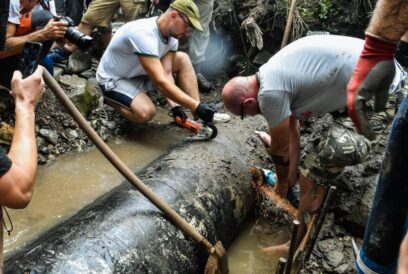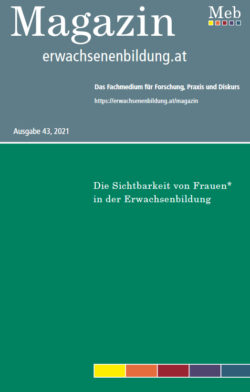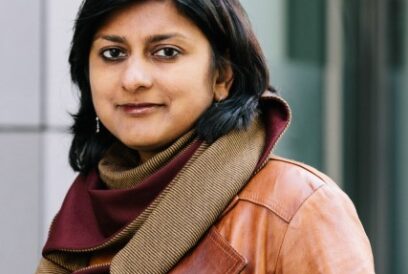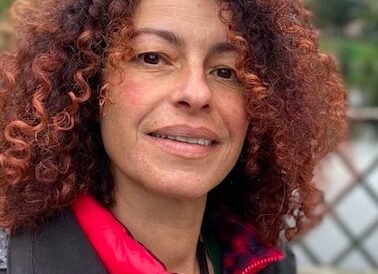

More and more academically oriented journals are active on social media and see this as a good opportunity to reach both academics and practitioners. Image: Shutterstock
More and more academically oriented journals are active on social media and see this as a good opportunity to reach both academics and practitioners. Image: Shutterstock
Adult education journals and publications are important communicators of research-based knowledge. More and more of them are becoming fully digital.
The diversity of publications on adult education in Europe is great. Some are purely academic, and others have more the character of a magazine. Many only operate online; some serve as a publication for an association.
The academic “journals” are typically affiliated to a university and see themselves explicitly as a publication opportunity for academics.
The journal Andragoska Spoznanja (Studies in Adult Education and Learning) from Slovenia is a publication that fits this category. Editor Borut Mikulec sees himself as part of the academic system.
“However, in recent years, our journal has published more and more thematic issues,” says Mikulec.
The editorial board members of Andragoska Spoznanja select the themes based on trends they find relevant, and then one of the members takes a leading role in drafting the call for papers and selecting articles, Mikulec explains.
Andragoska Spoznanja (Slovenia)

- Two thematic issues per year, academic journal, online (open access) and printed copies (150) English and Slovenian (partly as translation)
- Publisher: Ljubljana University Press, Faculty of Arts
According to him, readers of the journal are mainly practitioners seeking papers that would broaden their knowledge on the topics they work on. However, the journal does not directly measure the practitioners’ feedback on academic papers, so there is no clear data on their views.
Andragoska Spoznanja also publishes professional papers more strongly related to practical issues. These papers are mostly produced by education professionals themselves.
Mikulec also sees himself as an adult educator.
“Although I am not involved in daily provision aimed at adult learners, I do work as a professor in a master’s study programme on Andragogy, educating future adult education professionals.”
Publicity for diverse adult education work
Magazin erwachsenenbildung.at in Austria operates under the portal erwachsenenbildung.at, developed to inform about education information systems, basic issues and current topics of Adult Education in Austria and the EU.
The open access online-journal focuses on knowledge transfer from science and good practice to adult educators.
The publication relies on the support of its editorial and advisory boards to generate a broad range of topics and ideas.
The advisory board, which is mainly made up of academics, selects the topics that reflect the current state of the discourse, but also likes to set new topics to renew the field and bring it forward – a kind of agenda setting if you like – as the responsible editor Wilfried Frei says.
“We try to focus on findings from the field, but it is a fraying one, with loose edges and many overlaps in all directions of lifelong learning and the different reference sciences. We want to mirror the field, to offer a surface for identification, but also to broaden the view.”
In his editorial work, Frei has noticed that scientists are more trained at writing than authors from the practical field. His magazine supports the authors intensively until the final publication. There are often revisions, corrections and fine-tuning of the text.
Magazin erwachsenenbildung.at (Austria)

- Three thematic issues per year, online, open access, academic
- Publisher: Federal Ministry of Education, Science and Research together with the Federal Institute for Adult Education
This process, Frei finds, is crucial for a successful transfer of knowledge.
“Authors appreciate it very much and recommend younger academics to publish with us to professionalise themselves as writers. What we offer is obviously instructive for academic publishing.”
Academics in the qualification phase in particular, he observes, always want a double-blind review process, which is considered the highest standard in the quality assurance of academic journals. They hope that this will lead to an even higher rating for the publication.
“But Austria is too small for a medium that is so selective. There is simply far too little research for it. Moreover, we believe that our review process is a real factor in the quality development of manuscripts, thanks to the moderating role of the editorial staff and the intensive editing.”
A multidisciplinary perspective on all forms of learning
Aikuiskasvatus (Adult Education) from Finland also relies entirely on internet distribution.
The journal, which is academically oriented and peer-reviewed, is very active on social media and sees this as a good opportunity to reach users, both academics and practitioners.
The mission of Aikuiskasvatus is to produce a publication that people can use for self-study, for their own continuing education and as a source of information. Therefore, innovative topics are also taken up, such as in the article “Crocheting wasps’ nests – cultivating attentiveness for multispecies cohabitation”.
“We have a multidisciplinary perspective. All topics that cover education, learning and development of adults are welcome, both formal adult education and informal and non-formal learning, organisational development, civic education and societal change,” Editor-in-Chief Ulpukka Isopahkala-Boure says.
Aikuiskasvatus, Finland

- Peer-reviewed journal, four thematic issues per year, online, open access
- Social Media activities (Facebook, Twitter, Instagram, Blog, Podcast produced by university students)
- Publisher: Finnish Lifelong Learning Foundation, KVS, in partnership with The Finnish Society for Research on Adult Education
Author







